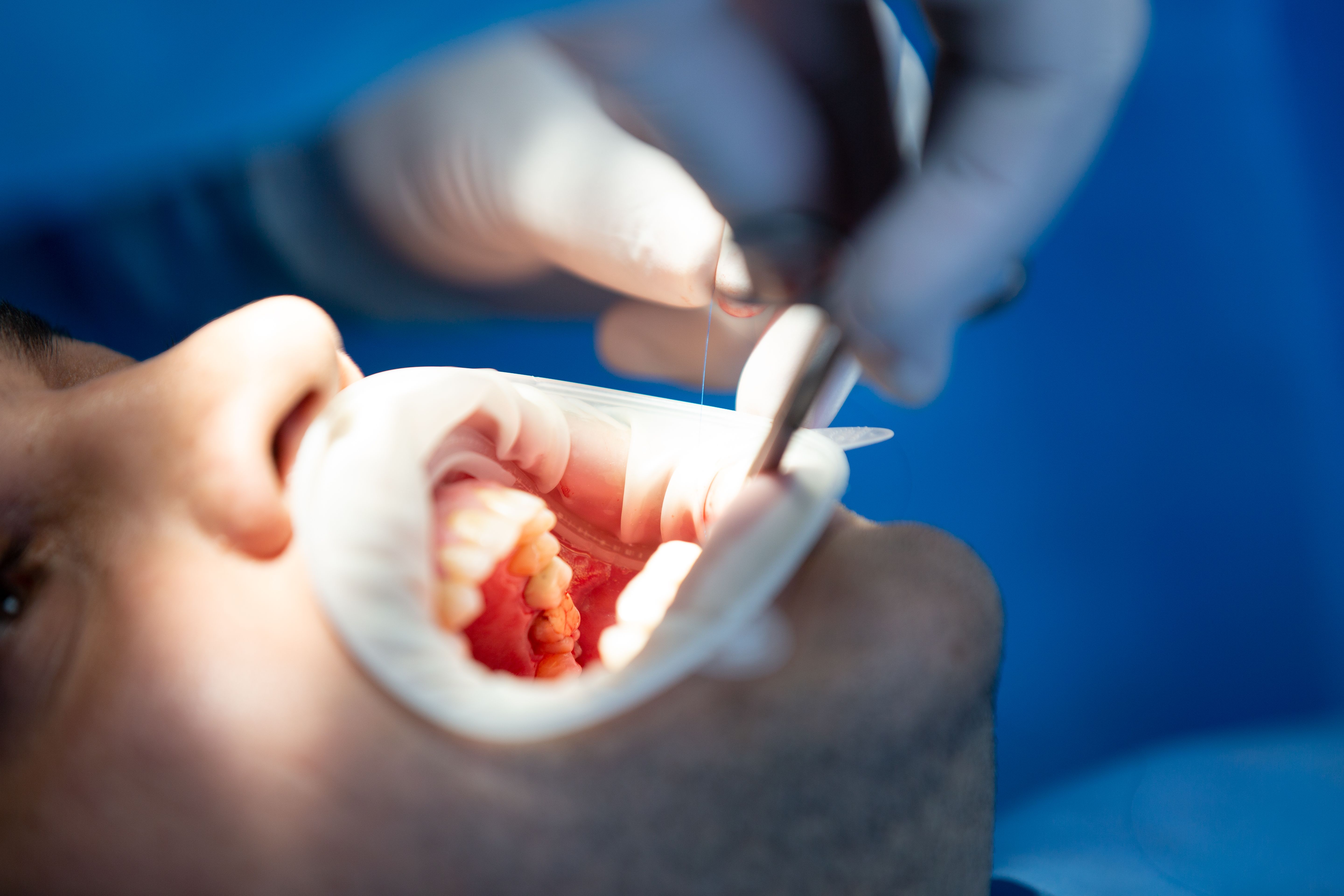How Can Dentists Help Ease Your Sinus Problems?
2023-05-09
Sinus problems can be an annoying and uncomfortable experience for many people. From congestion and headaches to facial pain and pressure, sinus issues can significantly impact one's quality of life. Fortunately, dentists can play a crucial role in helping to alleviate these problems.
While most people associate dental visits with cleanings and cavity fillings, dentists help diagnose and treat oral and facial issues, including sinus problems. By understanding the link between dental health and sinus health, dentists can provide practical solutions to alleviate sinus issues and improve overall well-being.
Through a comprehensive approach that addresses dental and sinus health, dentists can help patients find relief from sinus issues and improve their overall quality of life.
"The CDC (Centers for Disease Control and Prevention) estimates show that Sinusitis affects around 31 million people in the United States annually."
Signs and Symptoms that Indicate a Sinus Problem
Sinus problems affect the air-filled cavities within the bones of your face and skull. When these sinuses become inflamed or infected, it can cause uncomfortable symptoms. The common signs and symptoms of sinus problems include the following:
- Congestion: If you have a sinus problem, you may feel like your nose is blocked or stuffy, and it may be difficult to breathe through your nose.
- Pain: Another common symptom of sinus problems is pain or facial pressure. This pain is often felt around the eyes, nose, and forehead and may cause tenderness or swelling.
- Headache: Sinus problems can also cause headaches that you may experience in the forehead, temples, or the back of the head.
- Fatigue: Sinus problems can cause fatigue, making you tired and run down.
- Coughing: You may also experience coughing due to post-nasal drip, where mucus drips down the back of your throat.
- Sore throat: A sore throat is another common symptom of sinus problems, as mucus can irritate the throat and cause discomfort.
- Toothache: Sinus problems can also cause toothache near the sinuses.
- Reduced sense of smell and taste: Sinus problems may also affect your sense of smell and taste, making it arduous to be entertained by your favorite foods or scents.
If you undergo any of the symptoms mentioned above, it's crucial to seek medical attention from a healthcare professional promptly. An accurate diagnosis and personalized treatment plan are vital to manage your condition effectively.
Causes and Treatment Options for Sinus Problems
Various factors, including allergies, infections, and structural issues, can cause sinus problems. Here we'll discuss some of the chief causes of sinus problems:
Viral infections: The most common cause of sinus problems is viral infections, such as cold or flu. These infections can cause inflammation and swelling of the sinuses, leading to symptoms like congestion and facial pain.
Allergies: Allergic reactions to pollen, dust, mold, or other irritants can cause sinus problems. When an allergen comes into contact with the body, it triggers the release of histamine, which can result in inflammation and excess mucus production in the sinus cavities.
Bacterial infections: In some cases, bacterial infections cause sinus problems. These infections can be more severe than viral infections and may require antibiotics to treat.
Nasal polyps: Nasal polyps refer to growths that develop in the nasal passages or sinus linings and are typically noncancerous. These growths can obstruct the sinuses, leading to symptoms such as facial pain and congestion.
The treatment options for sinus problems vary depending on the condition's underlying cause. Some common treatments include:
Nasal irrigation involves flushing out the sinuses with a saline solution to help reduce inflammation and remove mucus.
Decongestants: These medications can help reduce swelling and congestion in the sinuses, making breathing easier.
Antihistamines: These medications can help to reduce allergy symptoms, such as sneezing and congestion.
Antibiotics: If a bacterial infection causes a sinus problem, your healthcare provider may prescribe antibiotics to help clear up the infection.
Surgery: In a few cases, the patient might require surgery to address structural issues causing sinus problems.

When to See a Dentist to Treat Your Sinus Problem?
Dentists can play a crucial role in diagnosing and treating sinus issues, especially those related to dental problems. Here are some signs that you should see a dentist to treat your sinus problem:
- Tooth pain and sensitivity: Sinus issues can often cause pain and pressure in the teeth and gums, making it challenging to identify the root cause. However, the dentist will examine your teeth and gums to determine if a dental or sinus problem causes pain.
- Difficulty chewing and swallowing: Sinus problems can also cause difficulty chewing and swallowing, indicating an underlying dental issue. A dentist can evaluate the function of your teeth and jaw to determine if any dental problems contribute to your sinus issues.
- Chronic bad breath: Sinus issues can also cause chronic bad breath, a sign of gum disease, or other dental problems. A dentist can help identify it by evaluating your oral health and may recommend appropriate treatment to improve your breath.
In cases where the sinus problem is not related to dental issues, a dentist may refer you to an ENT specialist or other medical professional for further evaluation and treatment. However, dentists can still play a significant role in managing sinus issues and relieving related symptoms.
How Do Dentists Help Ease Your Sinus Problems?
One of the main ways dentists can help ease sinus problems is by identifying any dental issues contributing to the problem. For example, dental infections or inflammation in the gums or teeth can create pressure on the sinuses, leading to pain and discomfort.
By addressing these dental issues, dentists can help alleviate the pressure on the sinuses and reduce the severity of sinus symptoms. Dentists can also recommend various treatments and techniques to help relieve sinus pressure and pain, such as facial massage, hot compresses, and nasal saline rinses. Here are some ways that dentists can help manage sinus issues:
- Treating dental infections: Dental infections, such as abscesses or gum disease, can contribute to sinus issues. Dentists can treat these infections through procedures such as root canals or periodontal therapy, which can help reduce inflammation and improve sinus symptoms.
- Performing sinus lifts: A dentist can perform a sinus lift procedure if you need dental implants in your upper jaw but have insufficient bone density due to sinus problems. It involves adding bone grafts to the sinus area to create enough bone density for the implant.
- Providing custom oral appliances: Dentists can offer custom-made oral appliances, such as mouthguards or splints, to help improve breathing and reduce snoring caused by sinus issues.
- Referring to other medical professionals: If your sinus issues are related to an underlying medical condition, a dentist can refer you to an ear, nose, and throat specialist or other medical professional for further evaluation and treatment.
In addition to these treatment options, dentists can guide managing your sinus issues through lifestyle changes such as dietary modifications, stress reduction, and proper oral hygiene practices.

What to Expect During a Dental Appointment for Your Sinus Problem?
During a dental appointment for your sinus problem, you can expect the dentist to examine your mouth, teeth, and gums thoroughly. Here is a list of some specific steps that you can expect during the appointment:
- Medical history review: The dentist will review your medical history, including any allergies, medications, or previous medical or dental procedures.
- Physical examination: The dentist will perform physical scrutiny of your mouth, teeth, and gums to look for signs of infection, inflammation, or other dental issues that may be contributing to your sinus problems.
- X-rays: The dentist may take x-rays of your teeth and jaw to get a more detailed look at the underlying structures.
- The dentist may also perform a sinus evaluation to check for any sinus-related issues contributing to your symptoms.
- Treatment recommendations: Based on the results of the examination and evaluation, the dentist will recommend appropriate treatment options for your sinus problem, which may include dental procedures, oral appliances, or referral to other medical professionals.
- Follow-up appointments: The dentist may track your progress and adjust your treatment plan with a series of follow-up appointments.
Ways to Prevent Sinus Issues
Preventing sinus issues is vital to avoid the discomfort and potential complications associated with sinus infections. Some of the ways to avoid sinus problems include the following:
- Practice good hygiene: Maintain good hygiene habits by frequently washing your hands and also refrain from touching your face, particularly your eyes, nose, and mouth, to prevent the transmission of germs.
- Use a humidifier: Keep the air in your home or workplace moist with a humidifier to prevent dry sinuses, which can cause irritation and inflammation.
- Stay hydrated, and drink appropriate water and other healthy fluids throughout the day. These will help thin out mucus and moisten your sinuses.
- Avoid irritants such as smoke, dust, and pollution, which can exacerbate sinus issues. Try to minimize your exposure to these irritants as much as possible.
- Manage allergies: Allergies can cause sinus problems, so managing your allergy symptoms can help prevent sinus issues. Consider taking allergy medications, avoiding allergens, and using air purifiers.
- Quit smoking: Smoking can irritate the sinuses and increase the risk of sinus infections. Quitting smoking can help prevent sinus problems and improve overall health.
- Practice proper dental hygiene: Poor dental hygiene can contribute to sinus issues. Schedule regular dental appointments and take time out of your busy schedule. Also, brush and floss your teeth regularly to maintain your dental hygiene.
Thoughts
Sinus problems can be uncomfortable and disruptive, but numerous treatment options are available to help manage your symptoms. If you are experiencing sinus problems, seeing your dentist and an ENT specialist diagnose and treat the issue accurately is better. Your healthcare provider will tailor a personalized treatment plan for your needs by managing your symptoms and preventing future sinus problems.
Contact your Walnut Creek dentist, Massood Darvishzadeh, DDS at Walnut Creek Dental, to know how Dentists Help Ease Your Sinus Problems.
Resource:
*This media/content or any other on this website does not prescribe, recommend, or prevent any treatment or procedure. Therefore, we highly recommend that you get the advice of a qualified dentist or other medical practitioners regarding your specific dental condition*
Subscribe To Our Newsletter
Get Updates And Learn From The Best